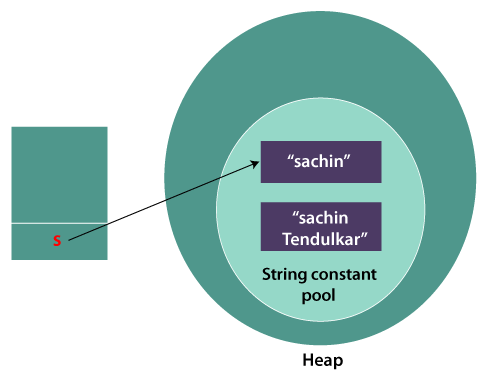Discovering the Advantages of Unalterable Strings in Modern Programs Paradigms
In the realm of contemporary programs paradigms, the idea of unalterable strings stands as a keystone of robust software growth. By taking on immutable strings, programmers can make certain improved data honesty, enhanced thread safety, streamlined debugging processes, increased protection measures, and reliable performance optimization.
Enhanced Information Honesty

By avoiding the modification of string things, immutability gets rid of the danger of unintended modifications to the information they hold. This not only enhances the safety of the info but likewise boosts the integrity of the code that counts on these strings.
Immutability also supports safer multithreading environments, as concurrent accessibility to immutable strings does not position the threat of information corruption via simultaneous alterations. This home streamlines the process of managing strings in identical programming scenarios.
Fundamentally, immutability serves as a safety guard around the data stored within strings, enhancing their honesty by guaranteeing that when specified, their worths remain unmodified throughout the program's execution.

Enhanced Thread Safety And Security
Immutable strings enhance the thread safety and security of programs by making sure that when a string object is produced, its value can not be changed. This building removes the threat of concurrent strings trying to customize the very same string simultaneously, which could lead to data corruption or irregular states in the program - Why are strings immutable in Java?. In a multi-threaded setting, where several threads gain access to and control data concurrently, the immutability of strings gives a degree of safety by assuring that the information continues to be unmodified throughout its lifecycle
Streamlined Debugging Procedures
Offered the boosted string security helped with by immutable strings, a substantial advantage arises in the world of simplified debugging procedures. Unalterable strings, once developed, can not be changed, making it simpler to trace the circulation of data and determine the source of insects in a program. This immutability makes sure that strings stay regular throughout the implementation of the program, minimizing the possibility of unforeseen adjustments that might result in errors.
When debugging with mutable strings, designers typically come across problems where a string's worth is modified accidentally, making it my blog challenging to pinpoint the source of an insect. Nevertheless, with immutable strings, the data continues to be the same, enabling designers to concentrate on assessing the real reasoning of the code as opposed to tracking down where and when a string was modified inaccurately.
Furthermore, unalterable strings simplify the debugging procedure by allowing much easier reproduction of bugs. Given that immutable strings do not transform state, developers can recreate and examine pests a lot more successfully, leading to quicker recognition and resolution of concerns within the codebase. This structured debugging process ultimately contributes to higher software application quality and enhanced general advancement efficiency.

Boosted Protection Actions
Enhancing information defense and strengthening system honesty, the utilization of unalterable strings in software applications adds substantially to enhanced safety and security review steps. Unalterable strings also play an essential duty in preventing typical security vulnerabilities such as buffer overflows and SQL injection assaults, as attempts to adjust string data at runtime are inherently limited.
Furthermore, the immutability of strings enhances the predictability of program behavior, making it simpler to validate inputs and stop unforeseen changes that can jeopardize safety and security. This predictability streamlines the process of auditing and validating code, allowing developers to determine prospective protection loopholes much more effectively. Generally, incorporating unalterable strings right into software advancement methods not only improves the robustness and integrity of applications however likewise strengthens their strength versus protection dangers.
Reliable Efficiency Optimization
When dealing with mutable strings, procedures like concatenation or substring production typically result in the production of brand-new string objects, leading to memory expenses and increased handling time. By allowing strings to remain unchangeable and consistent, unalterable strings facilitate much better memory monitoring and caching the original source opportunities, eventually enhancing the general performance of the software program.
Immutable strings also play an important role in multithreaded environments by promoting thread safety. Why are strings immutable in Java?. Given that immutable strings can not be customized when developed, they can be shared across strings without the risk of unanticipated adjustments, lowering the need for synchronization devices and enhancing concurrency. Additionally, immutable strings simplify debugging processes as designers can rely on that a string's value will remain consistent throughout the program's execution, eliminating prospective errors brought on by mutable state adjustments. In final thought, using unalterable strings not only enhances security yet additionally dramatically adds to the effective performance optimization of modern software systems.
Conclusion
Finally, the benefits of using immutable strings in contemporary programs standards can not be overstated. Boosted information stability, improved string safety, streamlined debugging procedures, boosted protection actions, and efficient performance optimization all add to the overall efficiency of programs tasks. By integrating unalterable strings into shows practices, designers can gain from an extra durable and trustworthy codebase.
Immutability, a vital function of strings in programming languages such as Java and Python, makes sure that once a string things is created, it can not be changed or changed.Immutable strings boost the string security of programs by ensuring that once a string things is created, its value can not be modified. Immutable strings also play an important role in stopping common safety susceptabilities such as buffer overflows and SQL injection assaults, as efforts to control string data at runtime are naturally limited.
By allowing strings to continue to be stable and constant, immutable strings facilitate much better memory monitoring and caching chances, eventually improving the general efficiency of the software program.
Unalterable strings streamline debugging procedures as developers can trust that a string's value will remain consistent throughout the program's implementation, getting rid of potential mistakes created by mutable state adjustments.